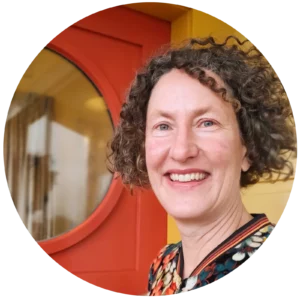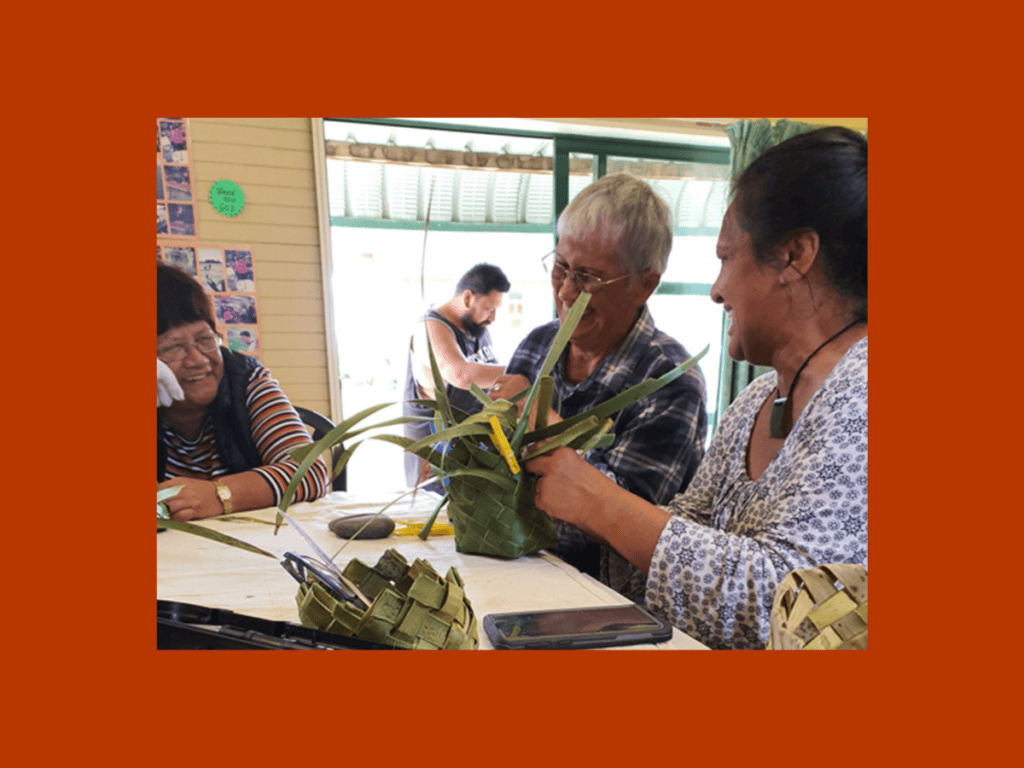“As carriers of culture, anchors for families, models for lifestyle, bridges to the future, guardians of heritage and role models for younger generations, … contributions [of older Māori] stand to enrich the quality of life for the whānau as a whole.”
– Sir Mason Durie
Health and wellbeing for Māori extends far beyond the physical body, and includes relationships with family and community, a sense of belonging, identity, purpose, mental and emotional states, spiritual elements, and connection to the land and natural environment. The British colonisation of Aotearoa New Zealand led to rapid and extensive loss of land, resources, sovereignty, and aspects of cultural identity for Māori. The negative effects of such disruption to the foundations of Indigenous health and wellbeing have been profound and long-lasting.
New Zealand’s current health system is designed from, and dominated by, a Western worldview which does little to acknowledge or rectify the health consequences of colonisation. Today’s generation of kaumātua grew up at a time when the New Zealand Government actively discouraged Māori children from being Māori – they were punished for speaking Te Reo Māori at school, often labelled as “retarded” in their learning, and taught to accept the English language and Pākehā culture as superior. Understanding these actions as assaults on the core of identity, it’s no wonder that Māori life expectancy and health expectancy is lower than that of Pākehā.
Professor Brendan Hokowhitu (Ngāti Pūkenga; University of Queensland) co-leads Ageing Well’s “Kaumātua Mana Motuhake Pōī” program in which the central thesis is that cultural revitalisation will improve wellbeing for Māori. And given that colonisation has depleted sovereignty in the lives of Māori, then mana motuhake provides an important pathway back to health. By fostering both an individual and collective sense of self-determination and autonomy, kaumātua can achieve long, high-quality lives.
Co-leader Professor John Oetzel (University of Waikato) explains that, unlike the deficit approach commonly used in modern healthcare, with its focus on fixing problems, this program worked from a strengths-based philosophy. The researchers acknowledged that there’s a rich resource already out there in families and communities. Every person has something to offer in the form of time, knowledge, or action, so by bringing people together and building relationships, everyone is strengthened, and people are empowered to solve their own problems.
As part of this philosophy, the research was thoroughly kaupapa kaumātua. Co-leader Rangimahora Reddy (Raukawa, Ngāti Maniapoto, Waikato Tainui, Ngāti Rangiwewehi me Rangitāne) is CEO of the Rauawaawa Kaumātua Charitable Trust; so she brought networks of kaumātua service providers and kaumātua to the table to ensure they had leadership and input throughout the design, execution, and dissemination phases of the mahi.
“Kaumātua Mana Motuhake Pōī” extends and diversifies research carried out in phase one of Ageing Well with three main components. The first is an intervention to increase support for kaumātua that draws strength from tuakana-teina relationships. For every challenging situation kaumātua face in life, there are others who have been through similar challenges before. By talking about tough experiences people can learn from each other and better navigate their own trials. As Rangimahora explains, “If nobody shares, everyone has to go through the process from scratch”.
The tuakana-teina project used a peer support model to match older experienced people (tuakana) with younger peers (teina). The teina recruited for the study were facing health or social challenges or big life transitions such as loss of a partner, loss of independence, or a health diagnosis. Tuakana were trained to support teina by active listening, sharing and helping to access support services or specialist referrals. Each tuakana served as a peer educator for six teina and had a series of conversations with them over six months.
A trial was rolled out in Kirikiriroa Hamilton with about 120 kaumātua in phase one of Ageing Well. Given the positive outcomes for both tuakana and teina, the research was extended to five other rohe (areas) in phase two of the research. Baseline surveys, with follow-ups after the intervention, enabled the impact of the tuakana-teina model to be assessed. It was found to be cost effective and beneficial for participants, having a particularly positive impact on quality of life, housing, and paying bills.
This project exemplifies the remarkable outcomes of kaupapa kaumātua initiatives, where kaumātua that had a teina role, were strengthened through peer support and those that were tuakana were further empowered by contributing their valuable experience and wisdom.
“Mātauranga Tuku Iho” – the handing down of traditional knowledge – was at the core of the second project in the “Kaumātua Mana Motuhake Pōī” program. The overall aim was to boost health and wellbeing through intergenerational cultural exchange and physical activity, but each individual rohe determined the content of their program in a locally relevant way.
Co-designed by kaumātua service providers and kaumātua, a series of wānanga were held to cover four main pillars: te reo Māori, local cultural knowledge, future generations, and physical exercise. Activities were held after each wānanga to consolidate what had been shared and consisted of physical movement in a cultural context such as walking to places of local significance, gardening, gathering kaimoana, as well as sharing mātauranga. Kaumātua who went through this “He Huarahi Tautoko” (pathway of support) each invited a younger whānau member to join them to foster the intergenerational knowledge transfer.
The impact of the “Mātauranga Tuku Iho” project was measured with questionnaires and physical functioning tests before and after the nine-months of activities. There was a statistically significant improvement in physical functioning for the participants. But, almost more important in the time of COVID-19 and social distancing, was social connection. Kaumātua appreciated being together and learning from each other, “And thank you for bringing these things to us because it’s kept us bonding and it’s strengthened us, not only here but outside there in the world… And these things in our group it’s like a pill. When we come together again, oh, there’s my pill for the month”. The younger generation also benefited, “This program is an excellent stimulus for encouraging me and others in our iwi to think about our physical health and well-being of the koroua and kuia”.
The third component of the research was bolstering the Kotahitanga Research Network (KRN) which was established in phase one of Ageing Well as a collective of academic and community researchers, kaumātua service providers, and other stakeholders. The KRN takes a truly collaborative approach to research that encompasses what kaumātua and their communities consider to be the important issues. It ensures that stakeholders contribute to project design thereby increasing the relevance, uptake, and implementation of findings.
Kaumātua are a key focus of the Kotahitanga Research Network with the researchers acknowledging that they hold the tools for ageing well. And that by facilitating opportunities to activate kaumātua-led mana motuhake, the program is successfully empowering kaumātua, guiding them towards a journey of health and wellbeing, and celebrating their strengths and resilience in overcoming past challenges.
Bridging the gap between academia and community has been crucial to the success of “Kaumātua Mana Motuhake Pōī”. It could not have been done without the Rauawaawa Kaumātua Charitable Trust. Rauawaawa are a “by kaumātua, for kaumātua, with kaumātua” community provider based in Kirikiriroa. They have been empowering kaumātua for 25 years. What started as an initiative to provide activities for kaumātua facing loneliness, is now a multi-pronged organisation that carries out research, organises national conferences, offers activities, and health, social, and education services for kaumātua.
Rangimahora has been leading Rauawaawa for 13 years. She explains that while research isn’t their core business, they see real benefits in doing it. “We are interested in how positive change and scientific evidence can help us get buy-in from agencies that are critical for creating enabling environments for kaumātua in Aotearoa”.
While research is important for Rauawaawa, so too is translation into practice. Participants have benefitted from activities run as part of research programs but how do these activities become accessible to more people on an ongoing basis? Te Aka Whai Ora (the Māori Health Authority) has provided one year of funding for Rauawaawa to run the “Matauranga Tuku Iho” program in the community. The future of the tuakana-teina initiative is currently under consideration for funding.
“Kaumātua Mana Motuhake Pōī” has demonstrated that initiatives that support and educate kaumātua to be in charge of their own destiny, reap quality of life and physical health benefits for participants.
But it’s not just about individual health and wellbeing. There’s a positive feedback loop here. Contributing to their whānau provides wellbeing benefits for kaumātua as Mason Durie writes, “A hallmark of wellbeing for older Māori is the capacity to provide leadership and direction, despite advancing years, and regardless of socio-economic position”. And, as his opening words to this story illustrate, having healthy, active, contributing kaumātua, leads to higher quality of life for the whole community. That’s a win-win situation for Aotearoa.
RESEARCHERS:
- Professor Brendan Hokowhitu
- Professor John Oetzel
- Rangimahora Reddy
- Associate Professor Mary Simpson
- Associate Professor Sophie Nock
- Ms Stacey Ruru
- Ms Pareaute Meha
- Associate Professor Anne-Marie Jackson
- Professor Poia Rewi
- Dr Bevan Erueti
- Dr Issac Warbrick
- Dr Tracy Perry
- Dr Yingsha Zhang
- Associate Professor Michael Cameron
- Kawarau Ngaia
- Ngapera Akapita
- Jade Tapsell
- Marama Clark
- Hariata Adams
- Shane Murphy
- Reuben Moses
- Ngareo Akariri
- Justina Anderson
- Te Kahurangi Skelton
- Tasha Burton
- Huia Huriwaka
- Honor Vercoe
- Jean Galvin
- Tania Tahu
- George Brown
- Rachael Owen
- Rachel Warbrick
- Daphne Vasea
- Rudy Alejandro
- Geraldine Boyd

